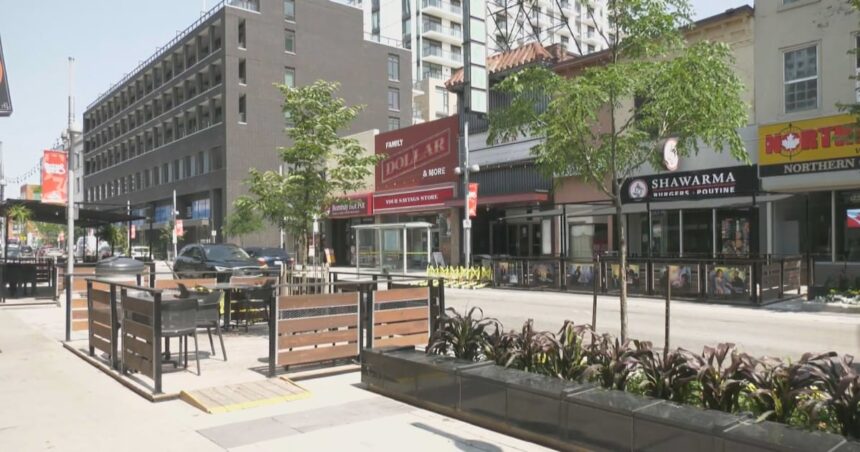The festive atmosphere of Canada Day celebrations in downtown Kitchener has been overshadowed by growing tensions between brick-and-mortar restaurant owners and mobile food vendors. What should have been a banner day for all local businesses instead became a flashpoint in an ongoing debate about fair competition and city planning.
“We were down about 75 percent in sales compared to a normal Saturday,” said Phong Tran, owner of Matter of Taste Coffee Bar. His establishment, typically bustling during downtown events, sat eerily quiet as crowds gravitated toward the food truck zone established by the city for the national holiday celebrations.
The controversy centers around the city’s decision to position approximately ten food trucks along Ontario Street between King and Duke streets, creating what amounted to a concentrated food district that diverted foot traffic away from established restaurants. Several business owners have voiced frustration that the arrangement effectively isolated them from the estimated 30,000 attendees at the Canada Day festivities.
“It felt like we were completely cut off from the celebration,” explained Jesse Howell, who operates Cafe Pyrus Outpost. “People had no reason to venture beyond the food truck area when everything they needed was concentrated there.”
The frustration has deepened because many of these downtown Kitchener businesses operate year-round, weathering seasonal fluctuations and contributing consistently to the local economy. They had anticipated Canada Day would provide a much-needed revenue boost during the summer tourism season.
City officials acknowledged the concerns but pointed to logistical considerations that influenced their planning. “We’re constantly balancing various needs during large events,” explained Allison Dempsey, Kitchener’s manager of special events. “Safety requirements, space limitations, and providing diverse options for attendees all factor into our decision-making process.”
The business community has been quick to clarify that their objection isn’t to food trucks themselves, but rather to their strategic placement during major events. “We’re not against healthy competition,” Tran emphasized. “We’re asking for thoughtful planning that gives all local businesses fair opportunity to benefit from city events.”
Several restaurant owners have proposed alternative arrangements for future celebrations, including distributing food vendors throughout the festival area to encourage exploration of the entire downtown core, or implementing a rotation system that would prevent any one area from monopolizing visitor traffic.
The city has committed to reviewing the feedback as part of their event planning process. “We value our permanent downtown businesses and recognize their importance to Kitchener’s identity and economic vitality,” said Dempsey. “We’ll be evaluating this year’s format and considering adjustments for future events.”
As Canadian cities nationwide grapple with revitalizing downtown cores post-pandemic, Kitchener’s food truck controversy highlights the delicate balance between innovation and supporting established local enterprises. The question remains: can city planners create event formats that serve visitors’ desire for convenience while ensuring the long-term sustainability of the permanent businesses that define downtown character?
























